Showing 1-8 of 8 results
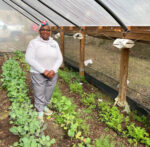
Pest Exclusion Systems for Pest Management in Vegetable Production Across the Southeast
In organic vegetable production, and in situations where farmers are seeking to reduce chemical applications, Integrated Pest Management (IPM) strategies are recommended to exclude pests in both opens fields and in high tunnels. The principles of pest exclusion involve separating the insect pest from the host plant and protecting the crop at a specific growth stage. Careful planning of both materials selected and management design are important to keeping pests out of a cash crop. This bulletin provides data and information from on-farm demonstrations on the use of pest exclusion systems. Pest exclusion systems use shade cloths as a barrier around high tunnels, low tunnels and hoop houses to exclude insect pests.
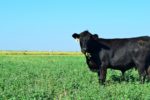
The Performance of Cover Crops in Minimally Tilled Forage-based Grazing Systems
In a Southern SARE-funded Graduate Student Grant (GS15-152), “Evaluation of Winter Annual Cover Crops Under Multiple Residue Management: Impacts on land management, soil water depletion, and cash crop productivity,” Texas Tech University researchers investigated five cover crops species as potential complements to a warm-season beef-stocker grazing system. The impact of the project was two-fold: Stabilize the soil surface from excessive wind erosion and desiccation; and strengthen rural communities by ensuring the persistence of profitable agriculture in the region.
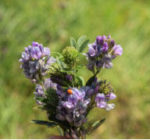
Integrating Legumes with Grass to Improve Forage-Livestock Systems
In a Southern SARE-funded Research and Education Grant (LS14-261), "Long-term Agroecosystems Research and Adoption in the Texas Southern High Plains -- Phase III," Texas Tech University researchers conducted a steer grazing trial comparing a grass only system to a grass-legume system for animal productivity and water use efficiency.
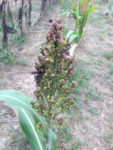
Innovations in Large-Scale Trap Cropping for Reducing Insect Pests
Trap cropping is a unique pest prevention system that uses insect behavior to deter pest feeding. Benefits of trap cropping not only include effective pest management, but trap crops can also increase biodiversity, conserve natural enemies and reduce wind damage to main crops.

High Tunnel Pest Exclusion System
Insect pests are one of the major problems in organic production systems. Organic IPM practice consists of a three-tiered approach consisting of systems-based practices, mechanical tactics, and biorational insecticides. Mechanical tactics encourage the use of physical barriers for pest exclusion. This bulletin provides preliminary research data and field observations about the success of shade cloths, or high tunnel pest exclusion (HTPE) systems, as a more permanent barrier system around the high tunnels.
Sustainable High Plains Research Bulletins
A series of bulletins showcasing the various facets of Texas Tech University research on integrated crop and livestock production systems in the Texas High Plains. The bulletins cover sustainable agroecosystems, crops and soils, and water conservation.
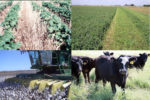
Agroecosystems Economics in the Texas High Plains: A 10-year analysis, 1999-2008
Based on 10 years of Texas Tech University research, integrated cotton-forage-beef cattle systems are just as profitable as cotton monoculture systems. But there’s more. Integrated crop-livestock systems use less irrigation water, are more energy efficient, preserve soils by reducing wind erosion, and have a lower economic risk related to specific-loss events, such as a drought.

Soil Quality of Integrated Crop/Livestock Systems: Enhancing soil carbon sequestration and microbial diversity
In the Southern SARE-funded study (LS10-229), “Integrated Crop and Livestock Systems for Enhanced Soil Carbon Sequestration and Microbial Diversity in the Semi-arid Texas High Plains,” Texas Tech University researchers evaluated integrated crop/livestock systems for long-term soil quality by assessing microbial activity and soil carbon storage.